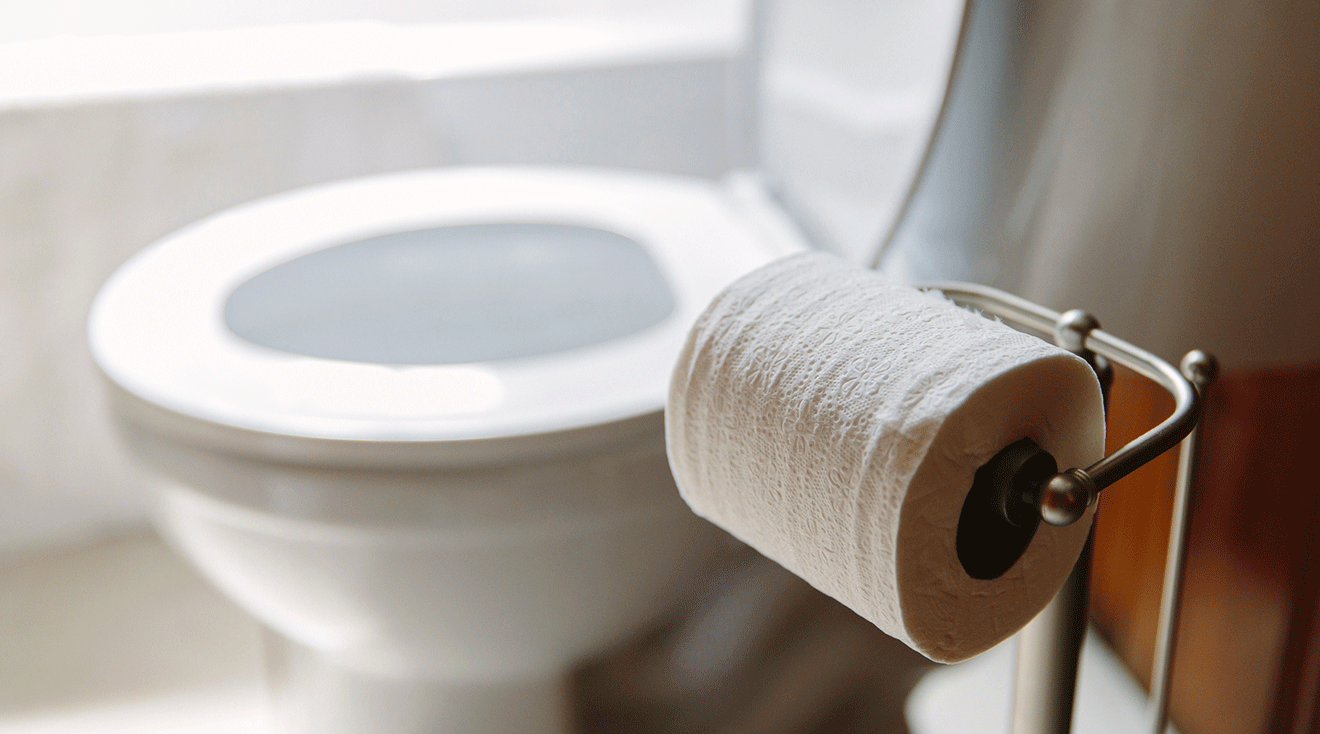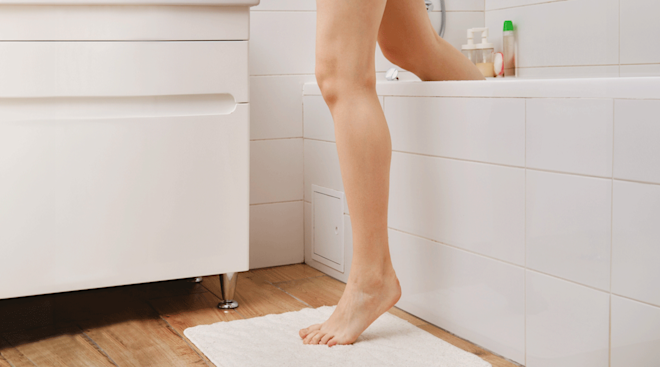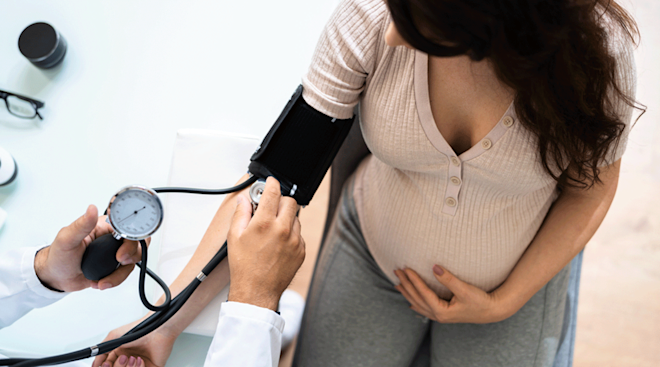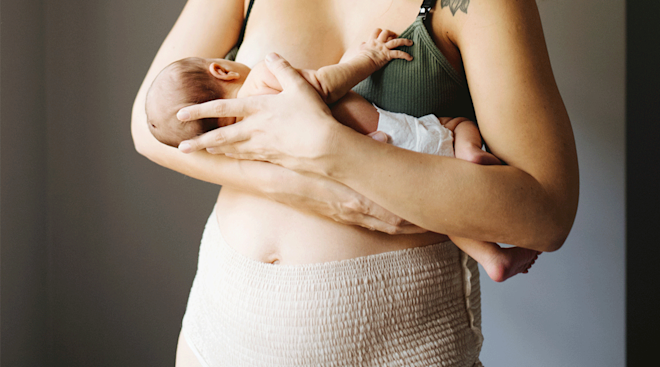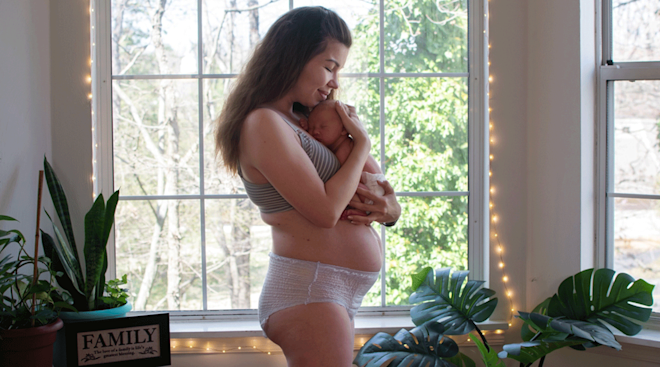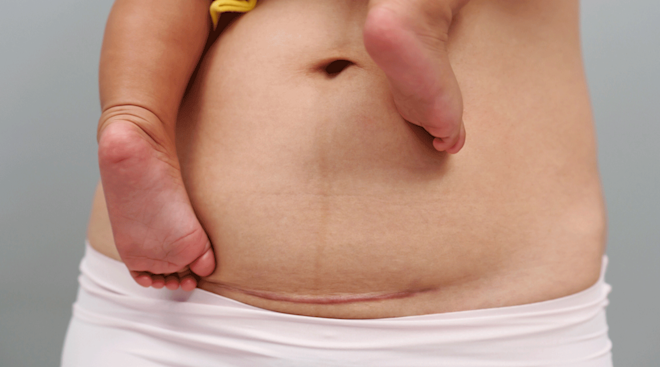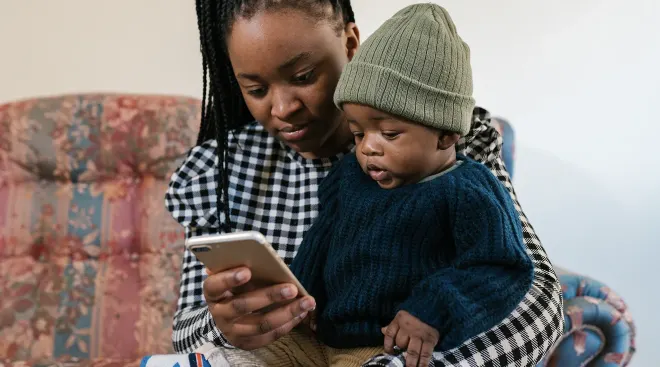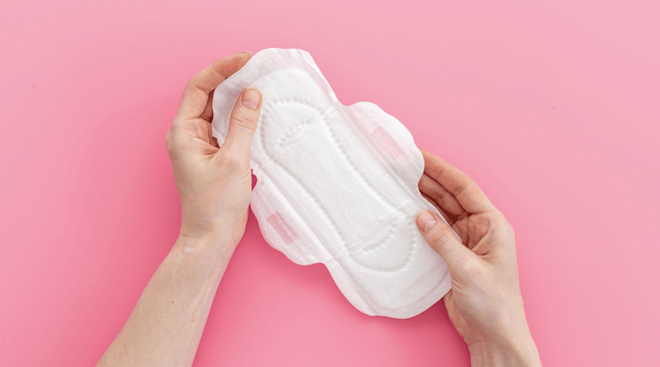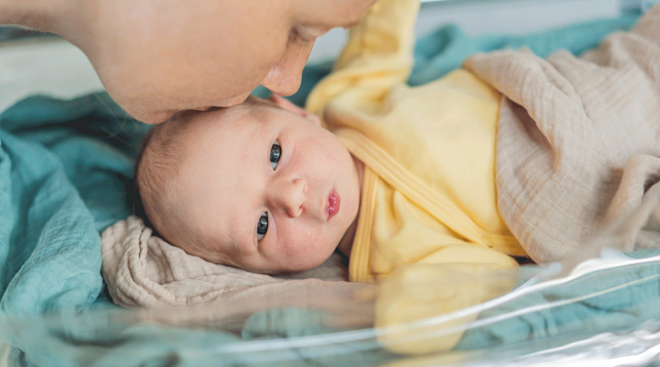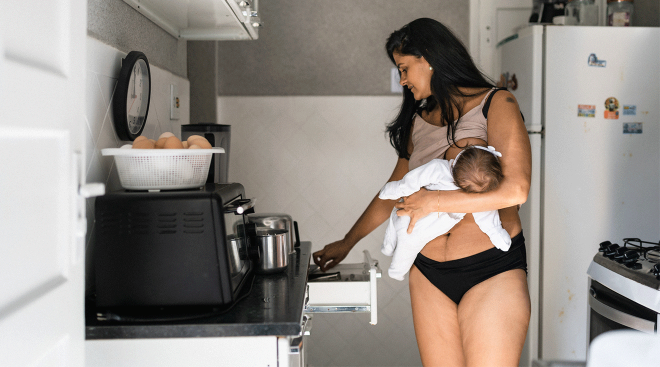How to Survive Your First Poop After Birth
Once baby’s born, you’ll want to bask in the joy of the newborn cuddles—and, of course, rest, at least as much as you physically can while feeding, changing and comforting baby around the clock. But at the same time, your body’s starting its postpartum recovery, which includes going back to its regularly scheduled bodily functions. That includes your first poop after birth—a little-talked-about, but important postpartum milestone. If you’re feeling nervous about pooping after birth, you’re not alone. (After all, that general vicinity may have been through a lot!) So what should you expect with your first postpartum poop? Read on for the full scoop, plus tips to help make pooping easier after giving birth if you’re having trouble.
Your first poop after birth can happen anywhere from around a day to four days postpartum, according to Cleveland Clinic, with it typically taking longer for those who’ve had a C-section than for those who’ve had a vaginal delivery.
However, the timing of your first postpartum poop can vary based on many factors, including medications you might be taking, says Christine Greves, MD, FACOG, an ob-gyn at the Orlando Health Women’s Institute. You could even poop during labor, she says—which is completely normal, by the way.
There are a variety of reasons you might not have an easy time pooping after birth, experts say. “Immediately following the birth of your baby, having a bowel movement can be challenging, painful and frustrating,” says Sherry Ross, MD, an ob-gyn, author, and co-founder of Oneself Intimate Skin Care and the Women’s Health & Wellness School on the MprooV app. She explains that if you’ve had a C-section, the pain medication you’re taking could lead to constipation. With a vaginal delivery, you might experience anxiety around tearing stitches, she adds.
After birth, it’s also not uncommon to be anxious about potentially painful poops, adds Greves, which can lead to issues with bowel movements. Weakened pelvic muscles can also make it harder to poop, says Cleveland Clinic.
Your first postpartum poop isn’t always smooth sailing. Here are some tips for making pooping after birth easier, according to Ross:
- Drink plenty of fluids. It’s best to drink at least eight to 10 8-ounce glasses of water a day. Fruit juice—especially pear or prune juice—can help regulate your first bowel movement and ease constipation. Drinking warm liquids in the morning can also help move things along.
- Eat lots of fiber. Choose high-fiber foods, such as fruits, vegetables, beans and whole grains. “Fiber helps bring water into the intestines, softening the stool and allowing it [to pass easier],” she says.
- Ask your provider for a stool softener. Stool softeners, such as Colace, moisten your stool, allowing it to pass easier. “I encourage my patients to take 100 milligrams of Colace two times immediately following delivery for best results,” she says.
- Take a laxative if needed. “Bulk-forming laxatives are gentle on your body and include Metamucil, Citrucel and MiraLAX,” says Ross. “If hydration, eating fiber and taking stool softeners aren’t effective, taking … laxatives should bring success.”
How to poop after giving birth with stitches
If you’ve had tearing during birth, you might have anxiety about pooping after birth with stitches. It’s rare for stitches to break and they’re unlikely to be affected by pooping, according to Tommy’s. But having soft stools—again, the tips above should help—will make it a lot easier to poop after birth with stitches and reduce the risk of aggravating them, says Greves. It can help to put your feet on a stool, which raises your knees above your hips while you sit on the toilet (this can help whether you have stitches or not!). Also, be sure to avoid straining!
How to poop with hemorrhoids after birth
Postpartum hemorrhoids are all too common. All of the tips above, such as drinking plenty of fluids and using a stool softener, can help you poop if you have hemorrhoids after birth. To treat the hemorrhoids, it can also help to use a sitz bath (a basin filled with warm water), apply witch hazel or sit on a pillow that relieves pressure, according to University of Rochester Medical Center.
Make sure to talk to your healthcare provider if you’re experiencing constipation after birth, says Tommy’s—essentially, if you can’t poop for a few days post-delivery. Also, make sure to discuss any bleeding that’s not the typical postpartum lochia, says Greves, including blood in the stool. She adds that if you have incontinence, you should make sure to mention it to your healthcare provider, who may recommend you for physical therapy and further evaluation.
Frequently Asked Questions
Does it hurt to poop after birth?
“It depends on the type of [vaginal tear] repair that you had, how extensive the laceration and how hard the poops are,” says Greves. Again, drinking fluids, eating plenty of fiber and taking a stool softener can help you have softer stools—and avoid painful poops.
Can you tear stitches after birth from pooping?
It’s very unlikely that your stitches will tear from pooping. But making sure your stools are soft by following the tips above can make postpartum pooping less painful and more comfortable overall.
Can you wipe after pooping after giving birth?
“Gentle, gentle, gentle, and you can always blot,” suggests Greves. Especially if you’ve had a vaginal tear, you could try using a squirt bottle with warm water at first, and gently pat it dry, according to Nemours KidsHealth. Be sure to wipe from front to back to avoid infection.
Bottom line: If your first poop after birth is on the challenging side, you’re definitely not alone. But there are a lot of ways to make it easier, including drinking plenty of water and taking a stool softener. If you’re still having trouble, or are experiencing bleeding or incontinence, make sure to check in with your healthcare provider.
Please note: The Bump and the materials and information it contains are not intended to, and do not constitute, medical or other health advice or diagnosis and should not be used as such. You should always consult with a qualified physician or health professional about your specific circumstances.
Plus, more from The Bump:
Christine Greves, MD, FACOG, is an ob-gyn at the Orlando Health Women’s Institute. She received her medical degree from the University of South Florida College of Medicine.
Sherry Ross, MD, is an ob-gyn and women’s health expert at Providence Saint John’s Health Center in Santa Monica, California. She’s the author of She-ology: The Definitive Guide to Women’s Intimate Health. Period. and She-ology, the She-quel: Let's Continue the Conversation. She’s also the co-founder of Oneself Intimate Skin Care and the Women's Health & Wellness School on the MprooV app. She received her medical degree from New York Medical College.
Cleveland Clinic, What to Know About Pooping After Giving Birth, July 2022
Tommy’s, Perineal Tears, February 2024
University of Rochester Medical Center, After Delivery: Common Conditions
Nemours KidsHealth, Recovering from Delivery, June 2024
Learn how we ensure the accuracy of our content through our editorial and medical review process.
Navigate forward to interact with the calendar and select a date. Press the question mark key to get the keyboard shortcuts for changing dates.
































